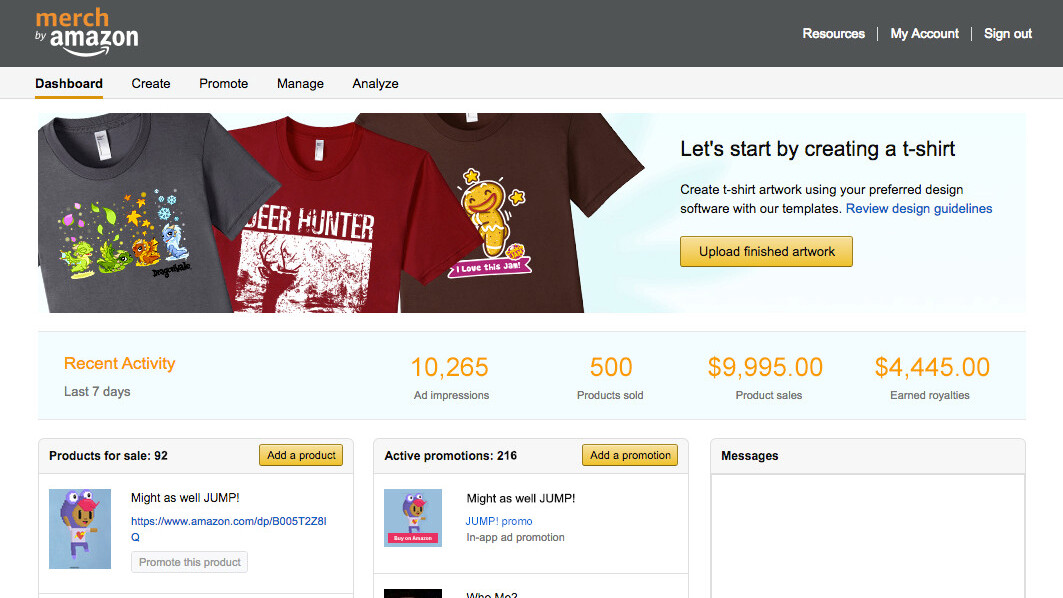
Today, Amazon announced Amazon Merch, which opens up the opportunity for app creators — particularly game developers — to design and distribute exclusive t-shirts, something that could mean snowballing royalties for small-time outlets if the population eats it up.
But my question is: Will this merch ploy save Amazon from its mediocre game ecosystem?
It’s no secret that the retail goliath has been trying to lure games onto its proprietary platform for some time now. Amazon heavily markets its new Fire HD tablets to gamers, and is now offers a gaming expansion to its new Fire TV.
The company is even willing to subsidize freemium ploys that have institutionalized themselves in the gaming revenue stream roadmap through its program, Amazon Underground.
Yet, what its really missing is a killer exclusive, or several. The problem with Amazon’s own app store is that it often feels locked out from what Android or Apple users get to experience. Although, for the most part, Amazon has been diligent about making top Android Apps available in its marketplace, there’s nothing that wows here.
Perhaps if we zoom out to Amazon’s bigger picture: why does it care about offering painless merchandising (and the accompanying advertising methods) to game developers? The answer is that it’s yet another incentive designed to get games studios to think seriously about making apps that help bring the gaming promise that Amazon wants to peddle to its customers.
But how does the production of shirts become an obvious ploy to woo developers?
In the most obvious instance, the companies used in the marketing campaign for Merch produce mobile games. And in the accompanying developer blog (and throughout the platform’s site), Amazon highlights that game devs can peddle their Amazon-made, Amazon-distributed wares right in their own app ecosystem.

To take it one step further, Amazon is betting that gaming companies want the merchandise sorted. Why? Putting it simply: geek culture is a thing. It’s what keeps sites like ThinkGeek running. It’s what pushes San Diego Comic Con to record levels of attendance. And perhaps, most germane to this issue, it’s what turned ‘Angry Birds’ from a fun casual came about breaking stuff into halloween costumes, fuzzy slippers and vitamin-enriched children’s fruit snacks.
So will t-shirt designs and ostensibly other future merchandise solve Amazon’s ills? The answer is that it’s unlikely. The company could take a page from the Ouya, which was acquired by Razer in July. Once a scrappy gaming upstart operating on the Android platform, the company scrambled to get indie developers the exposure they craved (backed with the platform’s then-impressive Kickstarter numbers) under the premise of limited exclusivity.
This worked to mixed effect, as Ouya struggled to retain exclusivity contracts when hiccups in hardware development threatened the precious timeline of those games. But it also provided some of its greatest successes — the buzz surrounding the very fun and very good exclusive game ‘Towerfall’ helped push non-backers into picking up an Ouya.
But Amazon doesn’t have the problems that Ouya had, and that’s a great thing. But it also doesn’t have the concrete guarantee to developers that an exclusive to its hardware will be a sure thing.
Either way, I believe that Amazon isn’t finished courting developers to take it more seriously. Whether it can do that through merchandise, through better hardware or simply the legwork remains to be seen.
Get the TNW newsletter
Get the most important tech news in your inbox each week.




